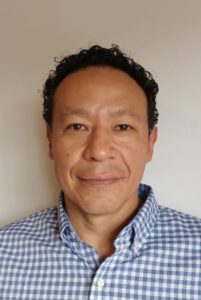WaterIQ Technologies Scientific Advisory Board
The members of WaterIQ Technologies' Scientific Advisory Board provide basic research and expert advice on how to control harmful algae safely and effectively, without the use of harmful chemicals. Board members are leading experts in algal and biofilm biology; the multiple methods for bioremediation, including the use of ultrasound; and aquatic ecosystems.

Paul Zimba
Dr. Zimba has worked in aquatic ecology, including worldwide research in marine, estuarine and freshwater ecosystems. He has focused on minimizing the occurrence and effect of harmful algal blooms on natural and aquaculture systems, focusing specifically on cyanobacteria. Dr. Zimba has published more than 135 papers, book chapters, and proceedings, including algal identification of known and new taxa, nutrient/algal relationships, chemical and physical methods for bloom control, as well as off-flavor, remote sensing, toxin detection and trophic relationships. He is currently a research faculty member at the Rice Rivers Center at Virginia Commonwealth University with previous employment at Texas A&M University Corpus Christi and with the USDA/Agricultural Research Service.

Enrique Mora
Dr. Mora has more than 10 years of experience in ecological restoration, monitoring water quality in aquatic ecosystems and aquatic ecological project management. As an academic professional, Dr. Mora has led and advised undergraduate research students on various contamination source research projects on bodies of water for the Technological Institute of Tantoyuca. Working with the city of Martinez de la Torre, he has contributed and led published research on controlling cyanobacterial harmful algae blooms in freshwater ecosystems in various parts of Mexico. He has also collaborated with other scientists to provide information and research for private entities and government agencies. Dr. Mora is affiliated with Ocean Experts (directory of marine and freshwater professionals), the Intergovernmental Oceanographic Commission and UNESCO.

Viviana Almanza
Dr. Almanza is an expert in the taxonomy of inland water microalgae and phytoplankton, particularly cyanobacteria and harmful microalgae. With more than 10 years of scientific research experience, she has co-authored more than 10 peer-reviewed and published research studies in the field of water ecology. Her current focus is on the study of the distribution and the periodic frequency of both cyanobacteria and eukaryotic microalgae (dinoflagellates and diatoms) blooms. Dr. Almanza seeks to better understand the environmental factors involved in bloom formation and development, the impact on important water resources (drinking water, recreational water, irrigation), and the community responses to its impact.
